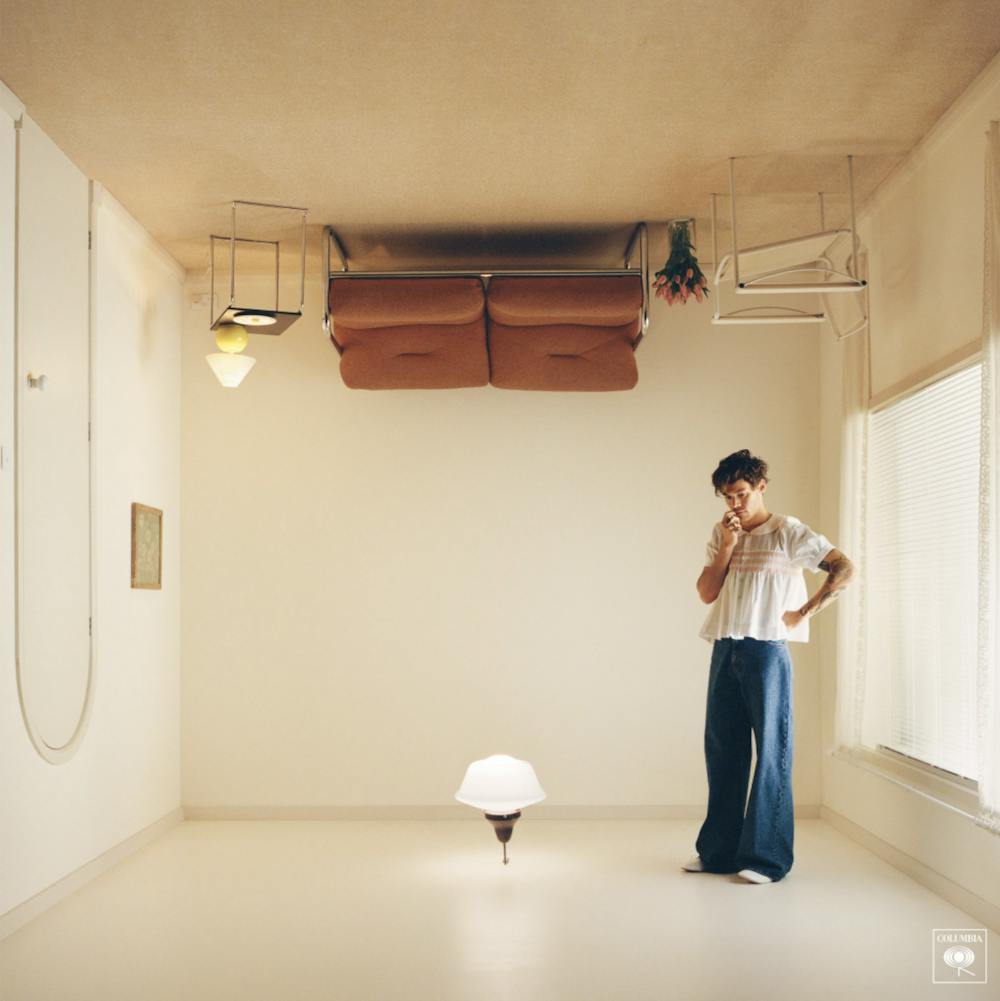The third album of the Grammy award-winning pop star Harry Styles has now unlocked its doors to its many anticipated fans and listeners. Harry’s House, equipped with 13 new tracks, opens up a new realm for the artist as he produces his most confident-sounding album, all while in the comfort of his own home.
The opening song, “Music for a Sushi Restaurant,” is a triumphant entrance to Harry’s House as he lets you in on songs that are near and dear to his heart. Styles has always opened his albums brilliantly and this album proves it further. With its eccentric bass line, layered vocals and blaring horns, it’s quite the eccentric opener. As funk as it can possibly be, this opener, as well as many other songs on the album, are bringing back some groovy elements from the ‘70s.
The overall sound of the album manages to be the most accomplished aspect of the whole album. It’s fantastically polished in all the right places, with Styles experimenting more with the instrumentation, but its heavy inclusion does not go unnoticed.
The album has a mix of both acoustic songs and dance songs, which is a normal formula for the artist. His new songs will definitely translate well when he performs them live, especially with songs like “Music for a Sushi Restaurant'' and “Daydreaming.” His heavy use of horns and bass amplifies a sound guaranteed to get any crowd up and pumping on their feet.
Amongst the collection of acoustic songs on the album, the two that stand out the most are “Matilda” and “Boyfriends.” Both songs are quite moving, especially because of their somber, resonating lyrics. “Matilda” has a subtle comforting factor, which has a slight resemblance to *Vienna'' by Billy Joel. With optimistic lyrics like “You don’t have to feel sorry for leavin’ and growin’ up” and “You don’t have to be sorry for doin’ it on your own,” the song touches hard on a personal level.
“Boyfriends” reflects on how troubling and mistreating boyfriends can be, as seen by Styles. “You love a fool who knows just how to get under your skin,” he sings in this truthful harmonic track. Styles unapologetically tells it as it is, even being a boyfriend himself, which only makes his fans swoon rightfully more than they already do.
Several songs throughout the album also dwell on Styles being deeply in love with someone. With songs like “Late Night Talking,” “Love of My Life” and “Cinema,” Styles has clearly moved on from the usual sad breakup songs and onto the more sensual romantic vibe. Some of his most poignant lyrics about his love life include “I’ve never been a fan of change / But I’d follow you to any place” and “You’d be the spoon / Dip you in honey so I could be sticking to you.”
Track 3 on the album, “Grapejuice,” is now added to the many other fruit-titled songs by the artist like *“Watermelon Sugar”, “Cherry” and “Kiwi.” This fruit-themed song is a bit more subtle and sultry than the other fruits as he sings about staying home with his significant other while drinking a bottle of red wine in the garden.
Following the theme of the album’s title, Styles has a lot of references to being at home. Whether it was the lucid mentioning of the kitchen, the bedroom or the garden, it’s easy to feel at home with these songs. The album overall is meant to feel comfortable, just like being at home, which is executed exceptionally well.
Behind Styles’ closed doors, there seems to be quite a lot of drugs inhabited within that house. The first single released, “As It Was,” contains the lyric of someone asking him “What kind of pills are you on?” Furthermore, “Keep Driving” makes references to cannabis, edibles and cocaine all in its bridge. But Styles isn’t the only one that is ingesting them as he sings, “You were doing cocaine in my kitchen,” as sung in *“Daylight.” More subtle references are spread across the album, but it seems to be the most he’s ever made on an album. Needless to say, these daring lyrics prove that Styles has become more courageous with his lyricism over the years.
Styles had a lot to measure up to with his sophomore album, Fine Line, having cultivated major success. But all in all, Harry’s House manages to lock up his predecessor’s doors by confidently evolving his sound and lyrics to his own liking, while also resurfacing musical elements from the past to provide an abundance of homely comfort.






